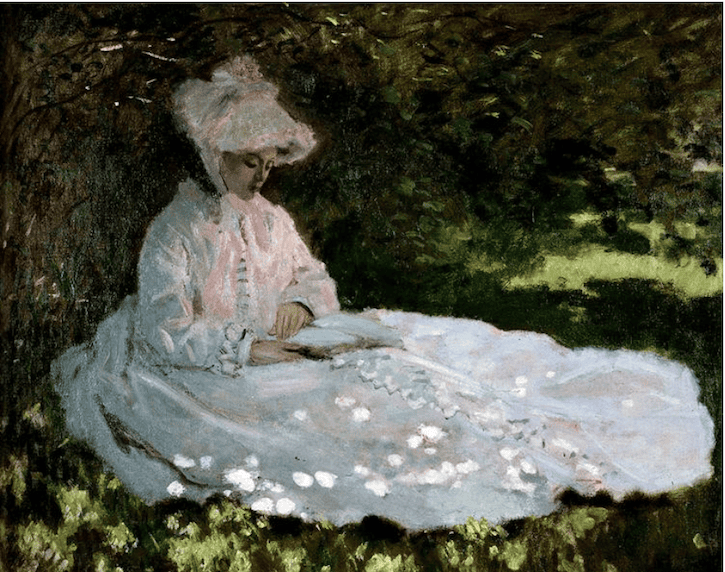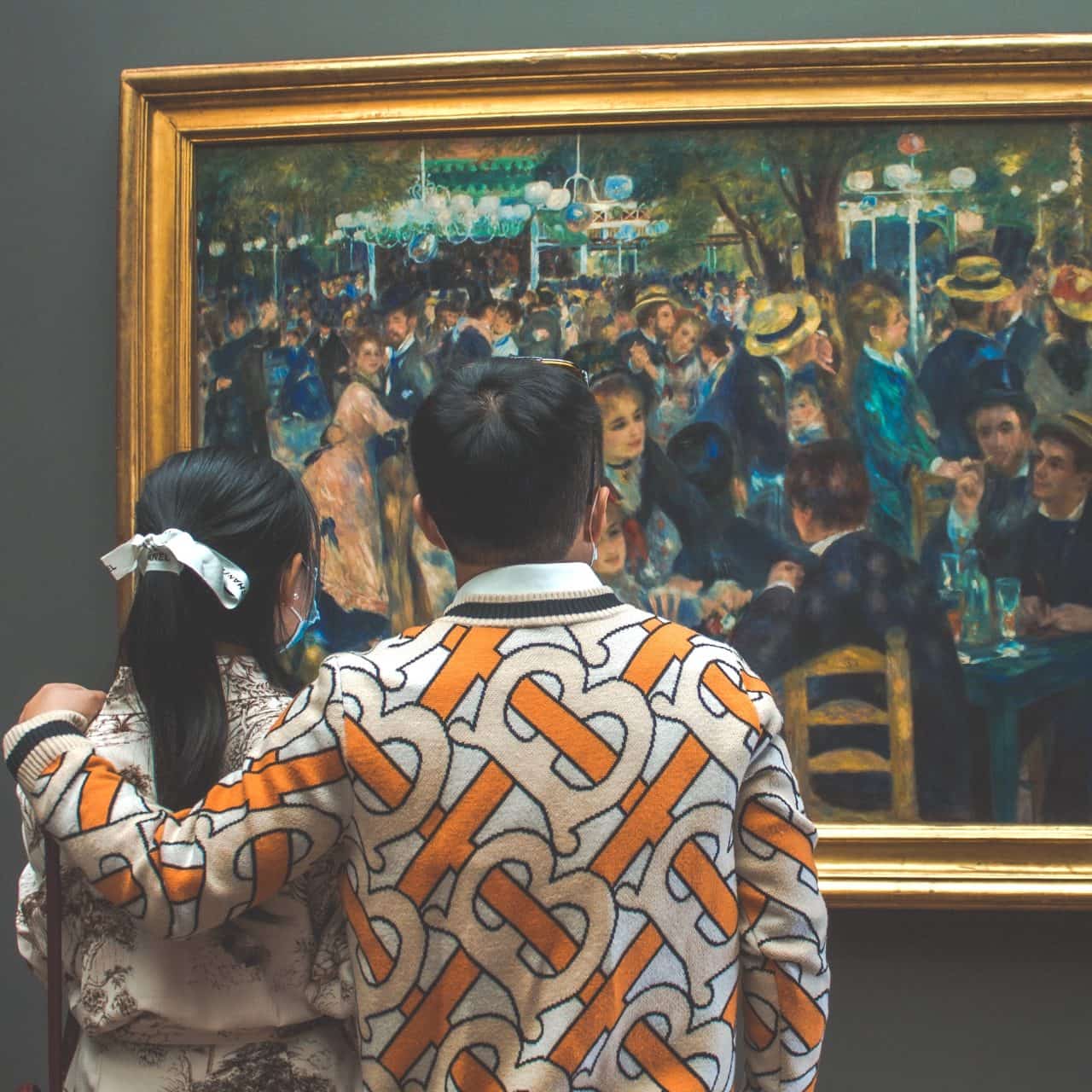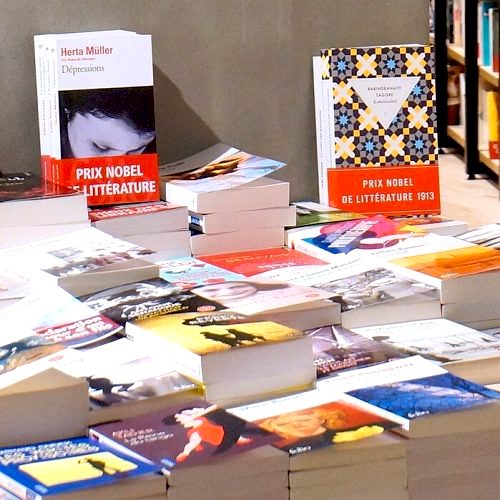In honor of the upcoming Journée internationale de la Francophonie, we’re dedicating this article to the most important francophone writers from outside the hexagone (metropolitan France).
By Alaina Schwartz
What is La Francophonie?
In short, “francophonie” is a general term referring to the countries that share French as an official or culturally significant language.* This concept has been a difficult and often controversial topic as the presence of this language in many of these countries is a direct consequence of France’s colonial history.
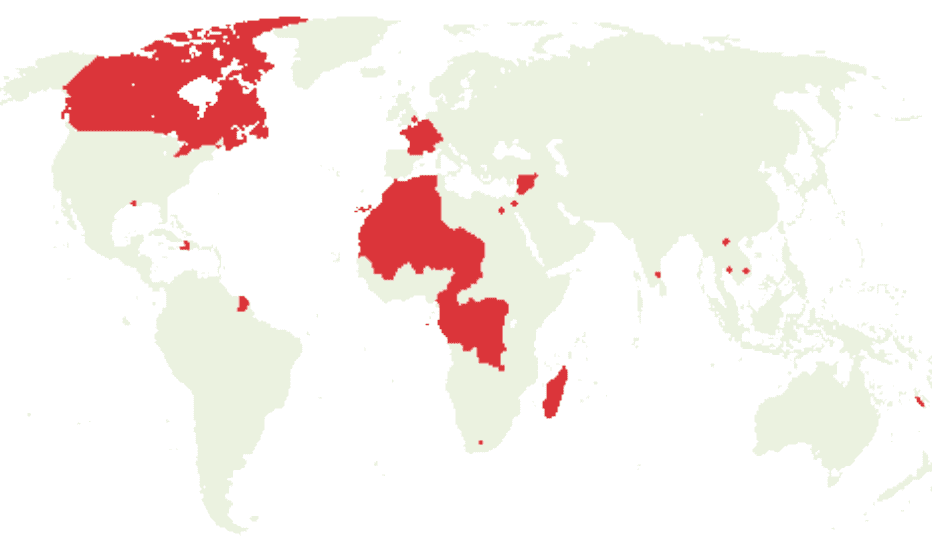
The Organisation internationale de la Francophonie (OIF) is an institution devoted to promoting the French language and cultural, educational, and political exchange among the many francophone countries in the world. The organization has eighty-eight member states, including francophone and non-francophone countries.
Each year, on March 20, OIF celebrates the Journée Internationale de la Francophonie. This day is dedicated to celebrating the diversity of the French-speaking world. For the year 2023, the theme is « 321 millions de francophones, des milliards de contenus culturels » (“321 million francophones, billions of cultural creations”), and is focused specifically on promoting the cultural work of French-speakers from around the world, and ensuring that their work is visible and easily accessible online.
You likely already know that French isn’t only spoken in France, but do you know just how widespread the language is? With an estimated 321 million speakers, French is the fifth-most commonly spoken language in the world. With that many people sharing a language, it only makes sense that many of the most important French-language writers come from throughout Europe, the Caribbean, Africa, and beyond.
*Good to know: “Francophonie” (with a capital ‘F’) refers specifically to the members and activities of the Organisation internationale de la Francophonie.
Léopold Sédar Senghor
Léopold Sédar Senghor (1906-2001) was a poet, writer, and Senegal’s first president. Born in Joal, in what was formerly French West Africa, the “Président-Poète” spent sixteen years of his life in France, where he studied linguistics and, with the collaboration of fellow African and Caribbean intellectuals like Aimé Césaire, developed the négritude movement. His promotion of African culture, literary creations, and political work have made him one of the most significant African figures of the twentieth century.
Did you know? Among many other firsts, Senghor became the Académie Française’s first African member in 1983!
Fatou Diome
Fatou Diome is a French-Senegalese writer. She was born in Senegal in 1968 and lives in Strasbourg, France. She’s best-known for her 2003 novel, Le Ventre de L’Atlantique (The Belly of the Atlantic), and has continued to publish a variety of works from novels and essays to poetry. Her work is largely inspired by her dual-identity, her life as an immigrant in France, and the relationship between France and African countries. She explores these topics in this interview on her most recent essay, “Marianne face aux faussaires” (“Marianne Against the Fakers”). She’s one of the most influential Senegalese writers of today.
Practicing your French: Diome was recently elected as a member of the Académie royale de langue et de littérature française de Belgique. Read more about it here!
Marie-Claire Blais
One of the most important Canadian writers in history, Marie-Claire Blais (1939-2021) was a playwright, novelist, and poet from Québec City. She published her first novel, La Belle Bête (The Beautiful Beast), at the age of twenty, and published over forty works of poetry, news articles, plays, and novels. She was essentially unknown to anglophone audiences, but was widely celebrated in the French-speaking world and was the recipient of multiple literary awards, along with two Guggenheim Fellowships. While she often wrote about the darker side of humanity, she once noted in an interview,
“Personally, I don’t like suffering. I prefer serenity.”
Marie Vieux-Chauvet
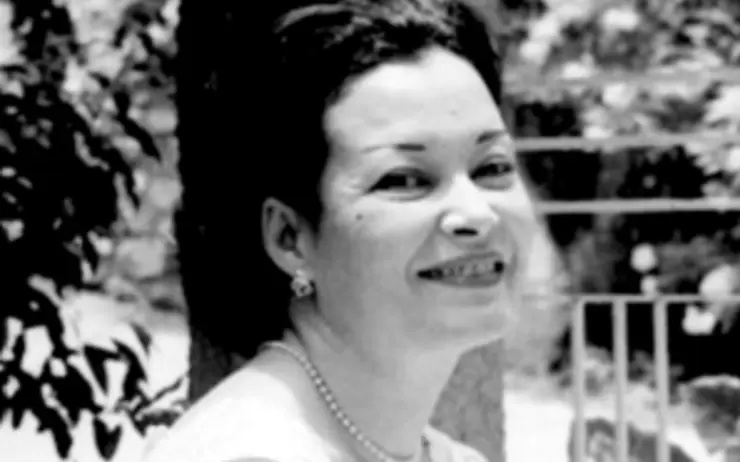
Marie Vieux-Chauvet (1916-1973) was a Haitian playwright and novelist. She was an unwavering critical voice against the United States occupation of Haiti and François Duvalier’s dictatorship, and faced heavy surveillance throughout her time in the country. During her time living under the regime, she continued to write and hosted meetings with a group of writers and poets called Les araignées du soir (The Evening Spiders). After publishing Amour, colère et folie (Love, Anger and Madness) in 1968, she feared retaliation from Duvalier’s regime and fled to New York City, where she spent the remainder of her life.
Frankétienne
Frankétienne (b. 1936), born and raised in Port-au-Prince, wears many hats. To name just a few, he’s a writer, intellectual, poet, musician, and artist. He is the oldest of eight children, and was raised solely by his mother, who worked as a street vendor in order to be able to send him to a French school, where he engaged with the language for the first time and later mastered it. He’s written in both French and Haitian Creole, often blending the two languages. The consensus among scholars is that he is the most important Haitian writer of all time. He still resides in the country today, where he continues to paint, write, and host workshops for local artists. He is applauded for bringing positive attention to the country.
Amélie Nothomb
Born in Belgium in 1967, Baroness Fabienne Claire Nothomb has published over thirty novels and short stories under the pen name Amélie Nothomb. The daughter of a diplomat, Nothomb spent most of her childhood traveling, and was particularly impacted by her time spent in Japan, where she attended school and learned Japanese. Since the age of twenty-three, she’s published one novel per year, and has received numerous literary awards. After completing her studies, she returned to Japan for work where she was inspired to write her widely-acclaimed satirical novel on Japanese corporate culture, Stupeur et tremblements (Fear and trembling).
Leïla Slimani
Leïla Slimani is a French-Moroccan journalist and writer. She was born in 1981 in Rabat, Morocco, and moved to Paris at the age eighteen to study political science and media studies.
She published her first novel in 2014, but reached massive popularity in France after publishing her psychological thriller, Chanson Douce (Lullaby), which won the Prix Goncourt in 2016. One year later, she was appointed by Emmanuel Macron as his personal representative to the Organisation internationale de la Francophonie.
Alain Mabanckou
Alain Mabanckou (b. 1966) is a Congolese writer and academic. Mabanckou divides his time between Congo, France, and the United States. In an interview with the UNESCO Courier, he discusses how this “tri-continental culture” has informed his writing and allowed him an expanded perspective on his native continent. His writing explores contemporary Africa and the African diaspora in France. He’s best known for his works of fiction, especially his novels African Psycho, Verre Cassé (Broken Glass), and Mémoires de porc-épic (Memoirs of a Porcupine). He’s won numerous awards, including the Prix Renaudot.
Mohamed Mbougar Sarr
Mohamed Mbougar Sarr (b.1990) is an award-winning Senegalese novelist. He’s penned four novels and multiple short stories since 2015, including La plus secrète mémoire des hommes (The Most Secret Memory of Men) which won him the Prix Goncourt in 2021. Not only is this France’s highest literary award, but Sarr was also the first sub-saharan African to win it. Ironically, the subject of this novel evaluates how African writers living in France navigate the challenging French literary establishment. When asked why he believes that same establishment would grant him the award, he replied,
“I don’t know how to interpret it exactly… Does it mean that they have a better sense of humor, more self-derision, than believed? Or is it a way to silence me, or to endorse me with the prize…?” He added, “But I really hope that it’s because it’s above all a good book.”
Gaël Faye
Gaël Faye was born in Burundi in 1982 to a French father and Rwandan mother, and emigrated to France at thirteen years old. In 2016, his best-selling novel Petit Pays (Small Country) was awarded the Prix Goncourt des lycéens. Much inspired by his own experiences, Petit Pays tells the story of a 10-year-old boy whose peaceful life is overturned by the civil war in Burundi and Rwandan genocide. The novel quickly became a sensation and was translated into thirty-six languages and was adapted into a film.
Practicing your French: Before publishing Petit Pays, Gaël Faye wrote a song with the same name, watch the video and read the lyrics here!
